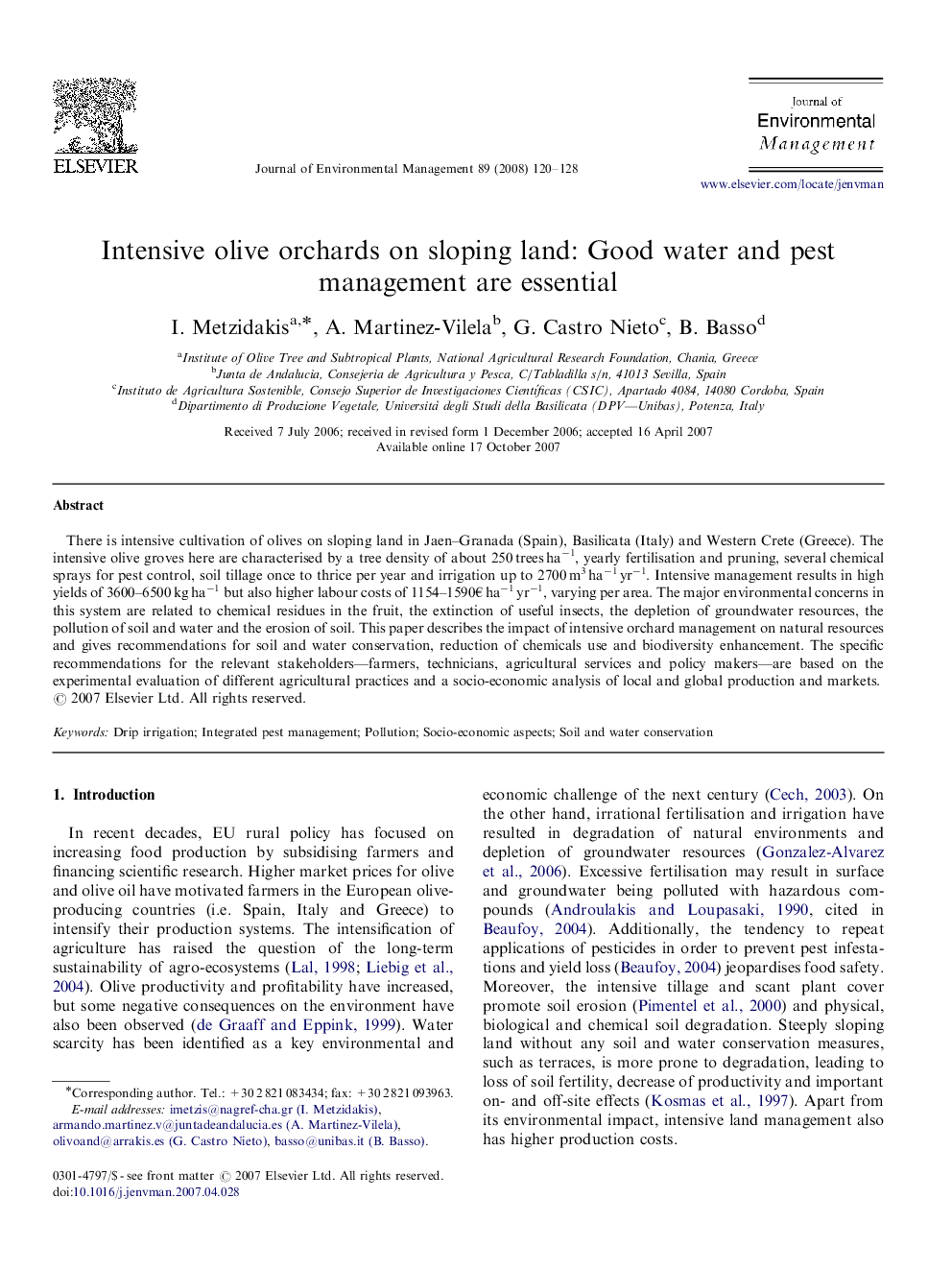| Article ID | Journal | Published Year | Pages | File Type |
|---|---|---|---|---|
| 1057620 | Journal of Environmental Management | 2008 | 9 Pages |
There is intensive cultivation of olives on sloping land in Jaen–Granada (Spain), Basilicata (Italy) and Western Crete (Greece). The intensive olive groves here are characterised by a tree density of about 250 trees ha−1, yearly fertilisation and pruning, several chemical sprays for pest control, soil tillage once to thrice per year and irrigation up to 2700 m3 ha−1 yr−1. Intensive management results in high yields of 3600–6500 kg ha−1 but also higher labour costs of 1154–1590€ ha−1 yr−1, varying per area. The major environmental concerns in this system are related to chemical residues in the fruit, the extinction of useful insects, the depletion of groundwater resources, the pollution of soil and water and the erosion of soil. This paper describes the impact of intensive orchard management on natural resources and gives recommendations for soil and water conservation, reduction of chemicals use and biodiversity enhancement. The specific recommendations for the relevant stakeholders—farmers, technicians, agricultural services and policy makers—are based on the experimental evaluation of different agricultural practices and a socio-economic analysis of local and global production and markets.
